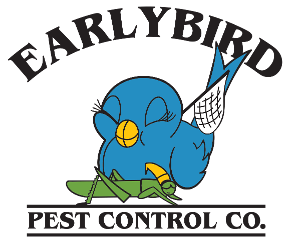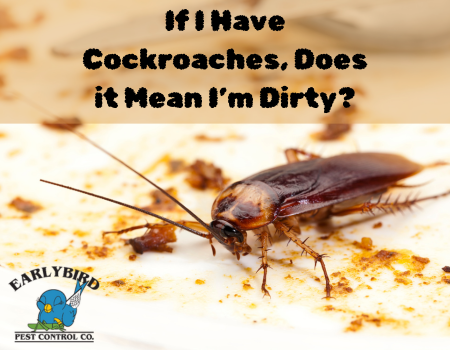Discovering cockroaches in your home can feel unsettling, and it often raises questions about cleanliness. Many people assume that finding cockroaches means a home must be dirty, but that isn’t always the case. Cockroaches are incredibly adaptable pests, and their presence can be influenced by many factors beyond cleanliness.
Why Cockroaches Invade Homes
Cockroaches are resourceful insects with survival skills that have allowed them to thrive in various environments for millions of years. They enter homes seeking three basic necessities: food, water, and shelter. While they can survive in unclean areas, their main goal is to find sustenance, moisture, and safe, warm hiding spots. Here’s a closer look at why cockroaches might invade:
- Food Sources: Cockroaches are opportunistic feeders that will eat almost anything, from crumbs and leftover food to pet food, grease, and even paper. However, even a clean home can attract cockroaches if food isn’t securely stored or crumbs are left on counters.
- Moisture and Water: Cockroaches need water to survive, and they’re attracted to moisture-rich environments. Even small leaks, condensation, or damp areas around pipes or sinks can create an ideal habitat for them.
- Shelter and Warmth: Cockroaches often seek shelter in warm, dark places, like basements, wall cracks, and the back of appliances. They prefer environments that offer consistent warmth and places to hide, especially during colder months.
Common Causes of Cockroach Infestations
Cockroach infestations can happen for several reasons unrelated to how clean or dirty a home is. Here are some common causes:
- Entry Points: Cockroaches can enter through cracks in doors, windows, and walls. Apartments and multi-unit buildings are especially vulnerable, as cockroaches can move between units through small gaps or shared plumbing.
- Transported Items: Cockroaches can hitch a ride in boxes, groceries, or luggage. Buying second-hand furniture or appliances can sometimes bring them into your home if the items were already infested.
- Climate and Weather: In colder seasons, cockroaches may enter homes seeking warmth and shelter. During droughts or dry weather, they might come indoors in search of water.
- Nearby Infestations: If there’s an infestation nearby (such as a neighboring apartment or unit), cockroaches may enter your home as they search for food and water, even if your home is clean.
Keeping Cockroaches Out
While cleanliness plays a role in preventing cockroaches, there are several additional strategies you can use to keep them out of your home.
- Seal Entry Points: Close off any potential entry points for cockroaches. Seal cracks in walls, windows, and doors, and install weather stripping around windows and door frames. Pay attention to gaps around pipes, as cockroaches can use plumbing routes to move between spaces.
- Reduce Moisture: Fix any leaks in pipes, faucets, and under sinks to limit cockroaches’ access to water. In areas prone to moisture, like basements and bathrooms, consider using a dehumidifier to reduce humidity.
- Store Food Properly: Keep all food, including pet food, sealed in airtight containers. Clean up any crumbs, spills, or leftover food from counters and floors. Taking out the trash regularly and storing it in a sealed container can also help reduce their access to food.
- Declutter Your Home: Reducing clutter, especially in storage spaces and around appliances, can help eliminate potential hiding spots for cockroaches. Clearing out cardboard boxes, piles of paper, and unused items will also reduce their access to shelter.
- Regular Cleaning Routine: While cleanliness alone doesn’t guarantee a roach-free home, a regular cleaning routine helps reduce potential food sources.
What to Do if You Discover a Cockroach
If you discover cockroaches in your home, taking prompt action can help prevent a larger infestation. Here’s what to do:
- Identify the Source: Try to locate where the cockroaches are coming from or where they’re hiding. Cockroaches are often found near food or moisture sources, such as kitchens, bathrooms, and basements.
- Use Baits or Traps: Cockroach baits and traps are an effective way to control small infestations. They attract cockroaches with food and poison them, helping reduce the population over time.
- Consider Professional Pest Control: For larger infestations or recurring issues, professional pest control can provide more effective, long-term solutions. Pest control professionals can identify hidden infestations, apply targeted treatments, and offer recommendations for preventing future infestations.
- Monitor and Maintain Prevention Strategies: After addressing an infestation, continue to follow preventative strategies like sealing entry points and maintaining cleanliness to reduce the chances of cockroaches returning.
Having cockroaches doesn’t automatically mean your home is dirty. Cockroaches are skilled at finding ways into any environment where they can access food, water, and shelter, making them a challenge even for the most spotless households. Regular maintenance, sealing entry points, reducing moisture, and managing food sources are the best strategies to keep cockroaches at bay. If you do encounter cockroaches, don’t panic; take proactive steps, use available pest control methods, and consult professionals if necessary. With proper prevention and awareness, you can keep your home cockroach-free without feeling any shame or self-doubt about cleanliness. Do not hesitate to reach out to Early Bird Pest Control Company can help you take those proactive steps needed to either keep the cockroaches away, or stop an infestation.


Recent Comments